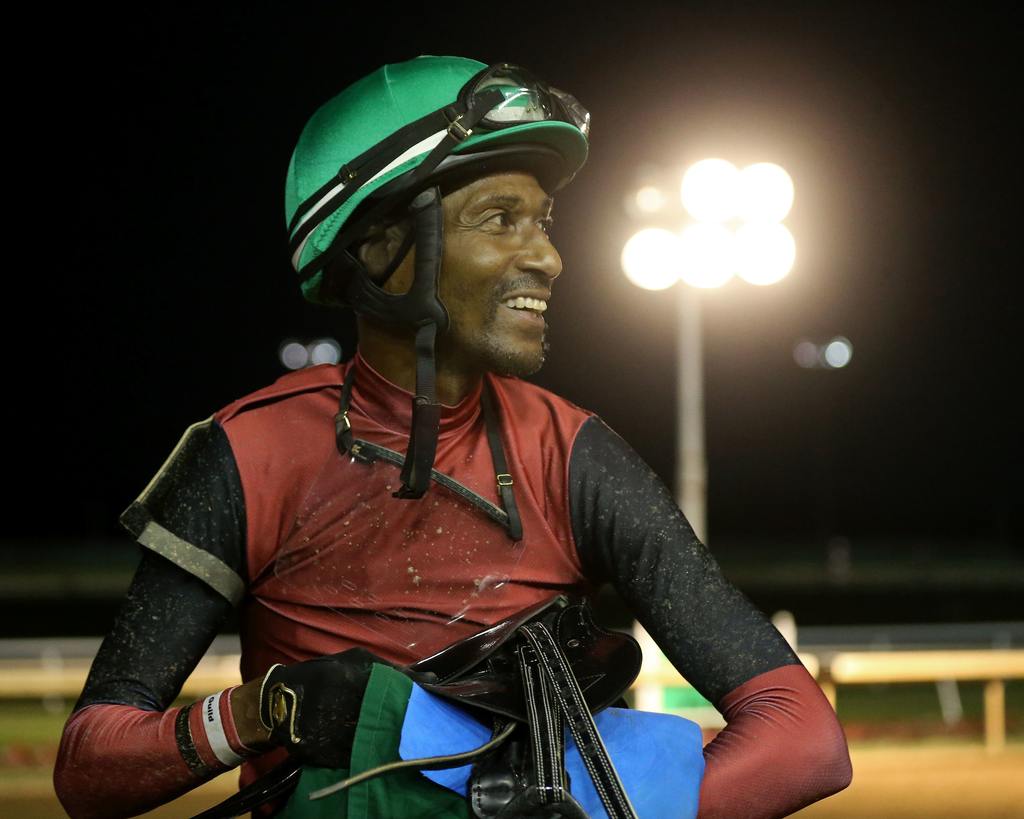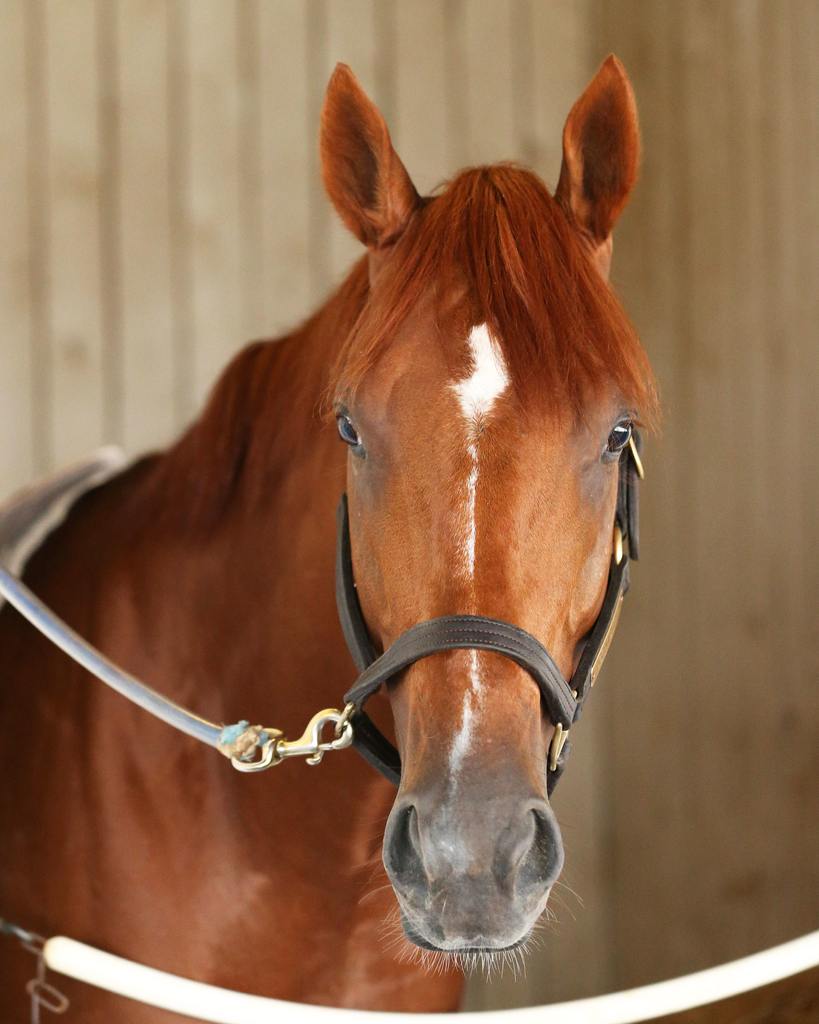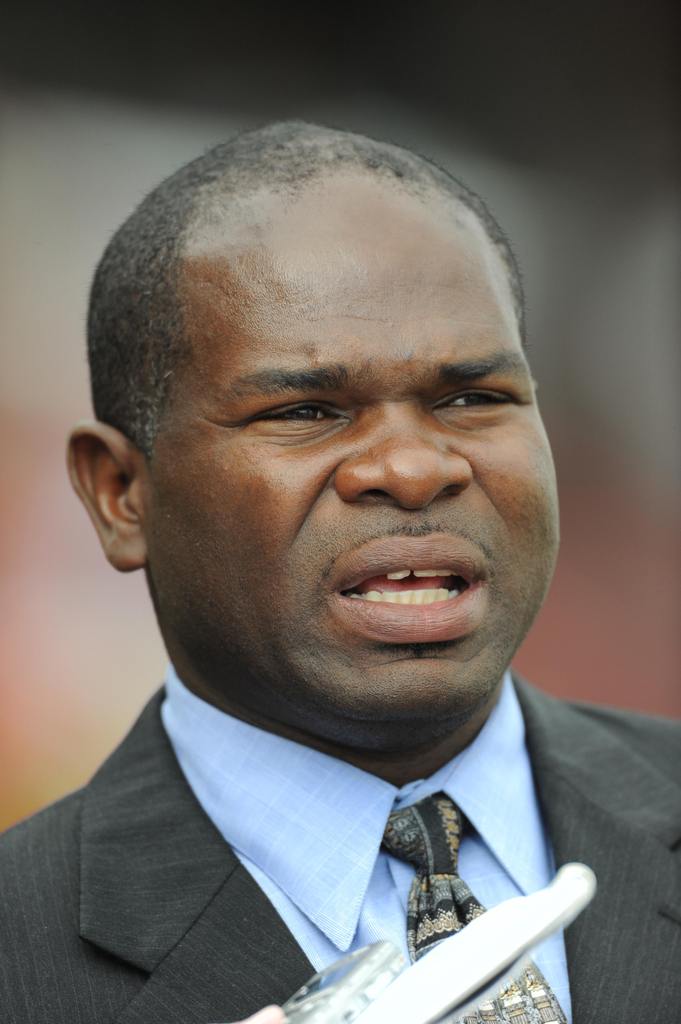
Three people to help us celebrate Black History Month at past the Wire
Deshawn Parker, the winningest Black jockey in North America (Coady Photography)
By Ross Blacker
In the world of thoroughbred racing, it is very easy to get swept up in the here and now: the Derby futures book and leaderboard, the premier older horse races and so much more. The racing calendar definitely heats up as we get closer to the first Saturday and May. There are questions aplenty as at the present time the number of horses on the Derby trail numbers in the 100s and there is definitely no shortage of news to fill the 24-hour cycle.
With all of that action, it’s easy to forget that February is Black History Month. The impact of African-Americans in the sport cannot be underestimated. While their numbers have certainly dwindled as time has gone on, their importance and indelible positive effect they’ve had on horseracing is something that must be mentioned, admired and celebrated.
Many people do not know that in the first 28 runnings of the Kentucky Derby, 15 times black jockeys found the winner’s circle. In addition, in the very first run for the roses in 1875, 13 of the 15 riders who comprised the field were of color.
One of the most prominent riders of that generation, Jimmy Winkfield was inducted in the National Racing Hall of Fame in 2004 and just last week, for the 38th time, NYRA presented a stakes race in Winkfield’s honor at Aqueduct in commemoration of Black History Month and the rider’s bevy of accomplishments.
Today’s popular YouTube channel The Real Players Inside the Backstretch pays homage to many of the African-Americans currently in the game while also shedding light on the past. Of particular interest, the channel, the brainchild of Rasi Harper a barber from New York’s Capital Region, highlights the many top grooms who hail from central South Carolina, particularly the town of Elloree.
In today’s piece, I have chosen to shine a light on one current black owner, trainer, and jockey. According to data gleaned from a 2020 New York Times piece on the topic, The Jockey Club does not have an African-American among its 128 members and has just five people of color among its 286 employees. Keeneland, which sold more than $627 million in horse flesh last year, also does not have a single African-American executive or board member among its leadership.
The Owner: Greg Harbut
A native of Lexington and third-generation horseman, Greg Harbut currently works in the industry as a bloodstock agent but is perhaps best known for owning, along with fellow African-American Ray Daniels, 2020 Derby starter Necker Island.
Harbut’s association and history with the sport involves some pretty prominent and seminal moments as his great-grandfather Will was the groom of the immortal Man O’War and his grandfather Tom was part-owner of 1962 Derby starter Touch Bar. However, no tangible record of this great accomplishment are present as not only was Tom banned from attending the race because of the color of his skin but his name was not even included in the race day program or subsequent race chart.
In addition to his work as a bloodstock agent and owner, Harbut, along with Daniels established the Ed Brown Society, named in honor of the former black trainer. The Society’s mission is to encourage more minority men and women to enter the thoroughbred racing business.
While he is waiting for his second Derby starter, Harbut is still extremely prominent in the game as he attends nearly all of the big races and counts many of the sport’s top syndicates and owners as clients.
The Conditioner: Charlie Baker
A presence in the game now for over 25 years, Jamaican native Charlton “Charlie” Baker’s laugh and voice are unmistakable on the backside of the NYRA circuit which he has been a part of for years after beginning his time stateside at Finger Lakes. For his career, the likable trainer has sent out nearly 8,300 horses and has accumulated 1,783 victories, amassing $39-plus million in purses.
Like many trainers in the sport, regardless of color or ethnicity, Baker grew up on the backside of a racetrack as his father was a longtime conditioner at Caymanas Park on the Caribbean island. He eventually followed his dad to New York and Finger Lakes before saddling his first winner in 1998.
Perhaps his most famous trainee is his highest earner, Joking. The son of Distorted Humor out of Spun Silk Mare, the gelding was a regular in the allowance ranks of NYRA for two seasons.
At the end of his career, the horse and Baker certainly saved the best for last as he went out with a bang capturing the Grade II True North and Grade I Vosburgh. The wins were the first two of the graded stakes variety for Baker and enabled him to earn more business.
While Joking was certainly a transformational horse for Baker, he certainly did not define him. Taking a look at the yearly stats, Baker posted over $2M in earnings in 2015-2019 and again in 2021 and 2022. In fact, in 2016 and ’17 he came painfully close to reaching $3M in earnings, proof that it was not just one horse that propelled him to success.
The Rider: Deshawn Parker
While there are a few riders to choose from in this category I went with Midwest jockey Deshawn Parker. Other names that could’ve found their way into this space include multiple graded stakes winning pilot Kendrick Carmouche or Marlon St. Julien who in 2000 aboard Curule became the first African-American jock to have a mount in the Kentucky Derby in some 79 years.
Keeping in line with the familial lineage theme of both Harbut and Baker, Parker was born into the game as his late father Daryl was the first black racing official in America, a role he assumed in 1986. Before becoming a steward at all three Buckey- state tracks, Daryl was an agent, pony boy and exercise rider.
At 5-foot-10 weight has always been an issue for Deshawn but he has not let it stop him, earning entry into the exclusive and prestigious 6,000-win club in 2021. While he never applied his craft on a so-called big circuit, Parker chose to dominate away from the spotlight, leading all of America in wins in both 2010 and 2011. In what unfortunately is an all-too-common theme when it comes to blacks in the sport, Parker’s 2010 title was the first national victory mark for a jockey of color since way back in 1895.
For years, he was a dominant force in West Virginia residing atop the Mountaineer jockey table year after year before expanding his horizons and heading to the Midwest in search of bigger business and more lucrative purses. In 2021, he was recognized by his peers with the George Woolf Award paying tribute to those whose careers and personal character garner esteem for the individual and the sport of Thoroughbred racing.




